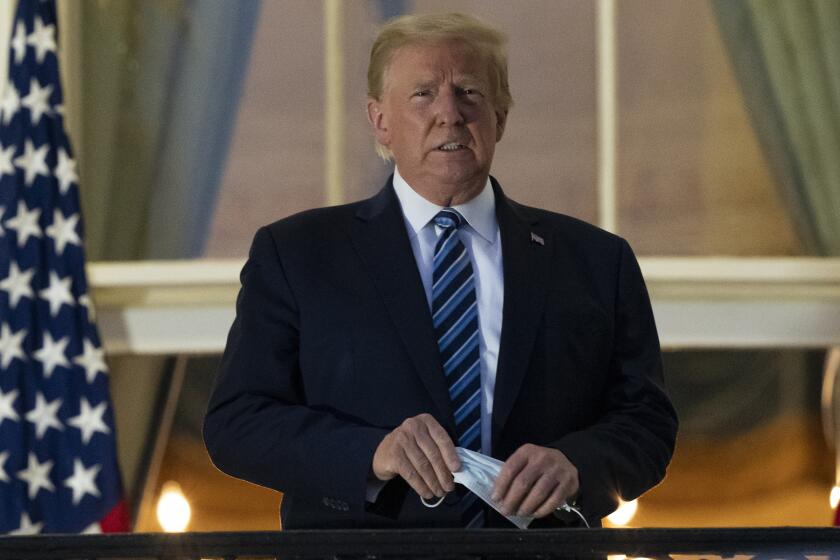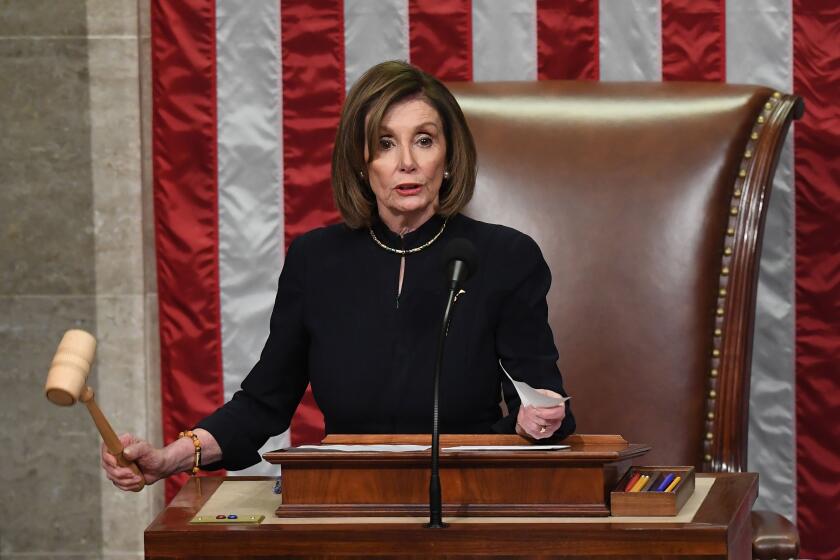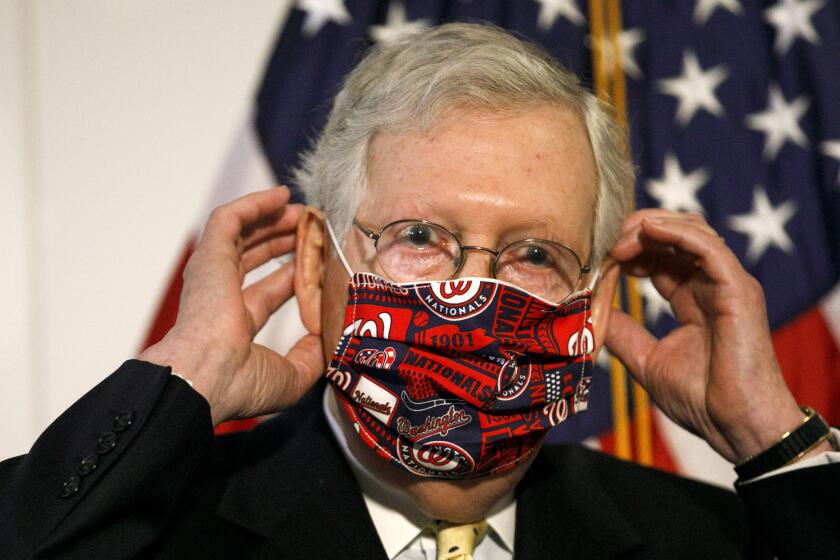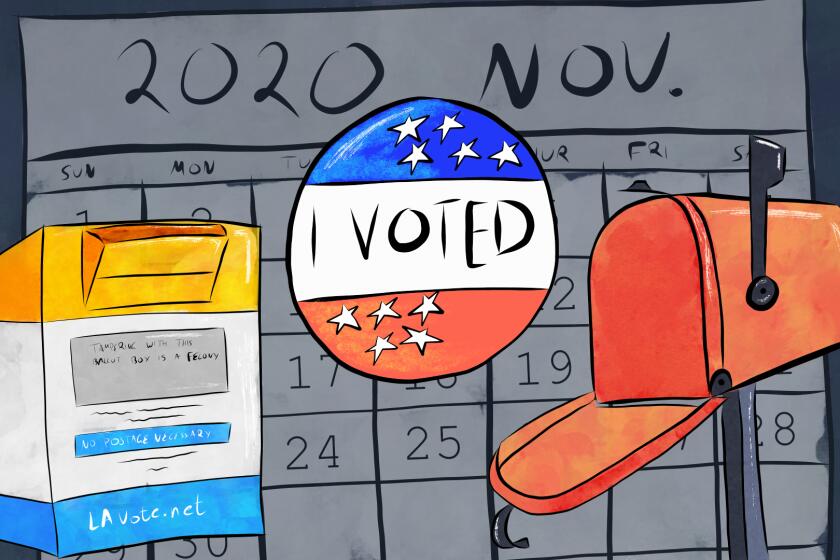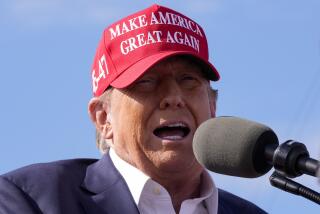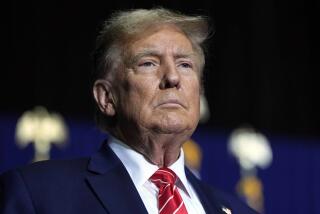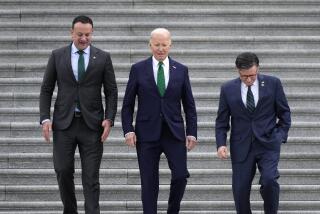How Trump plowed through $1 billion, losing his campaign’s cash advantage
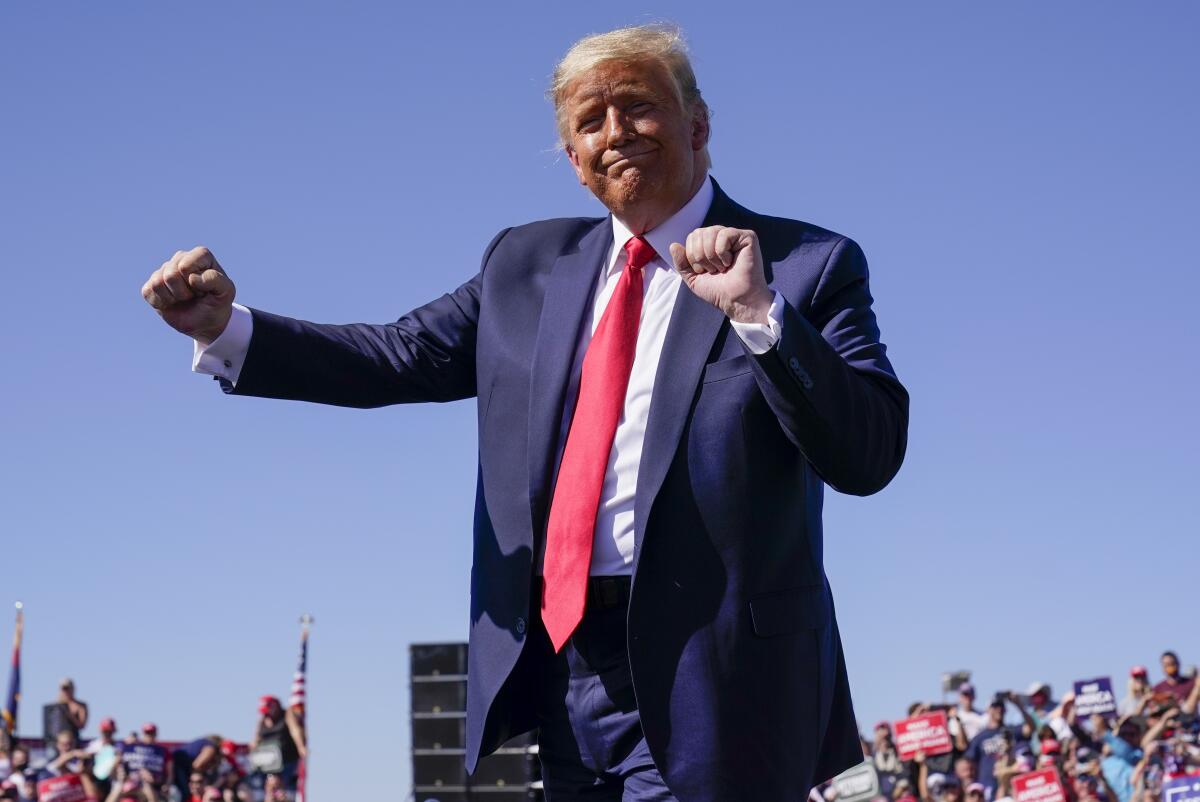
President Trump’s sprawling political operation has raised well over $1 billion since he took the White House in 2017 — and set a lot of it on fire.
Trump bought a $10-million Super Bowl ad when he didn’t yet have a challenger. He tapped his political organization to cover exorbitant legal fees related to his impeachment. Aides made flashy displays of their newfound wealth — including a fleet of luxury vehicles purchased by Brad Parscale, his former campaign manager.
Meanwhile, a web of limited liability companies hid more than $310 million in spending from disclosure, records show.
Now, just two weeks out from the election, some campaign aides privately acknowledge they are facing difficult spending decisions at a time when Democratic nominee Joe Biden has flooded the airwaves with advertising. That has put Trump in the position of needing to do more of his signature rallies as a substitute during the COVID-19 pandemic while relying on an unproven theory that he can turn out supporters who are infrequent voters at historic levels.
“They spent their money on unnecessary overhead, lifestyles-of-the-rich-and-famous activity by the campaign staff and vanity ads way too early,” said Mike Murphy, a veteran Republican consultant who advised John McCain and Jeb Bush and is an outspoken Trump critic. “You could literally have 10 monkeys with flamethrowers go after the money, and they wouldn’t have burned through it as stupidly.”
For Trump, it’s a familiar, if not welcome, position. In 2016, he was vastly outraised by Democratic nominee Hillary Clinton but still pulled off a come-from-behind win. This time around, though, he was betting on a massive cash advantage to negatively define Biden and to defend his own record.
Trump stops TV and radio ads in Ohio, Iowa and New Hampshire as Biden expands into Texas and Georgia.
Trump campaign manager Bill Stepien insisted money was no issue. “We have more than sufficient air cover, almost three times as much as 2016,” he told reporters Monday.
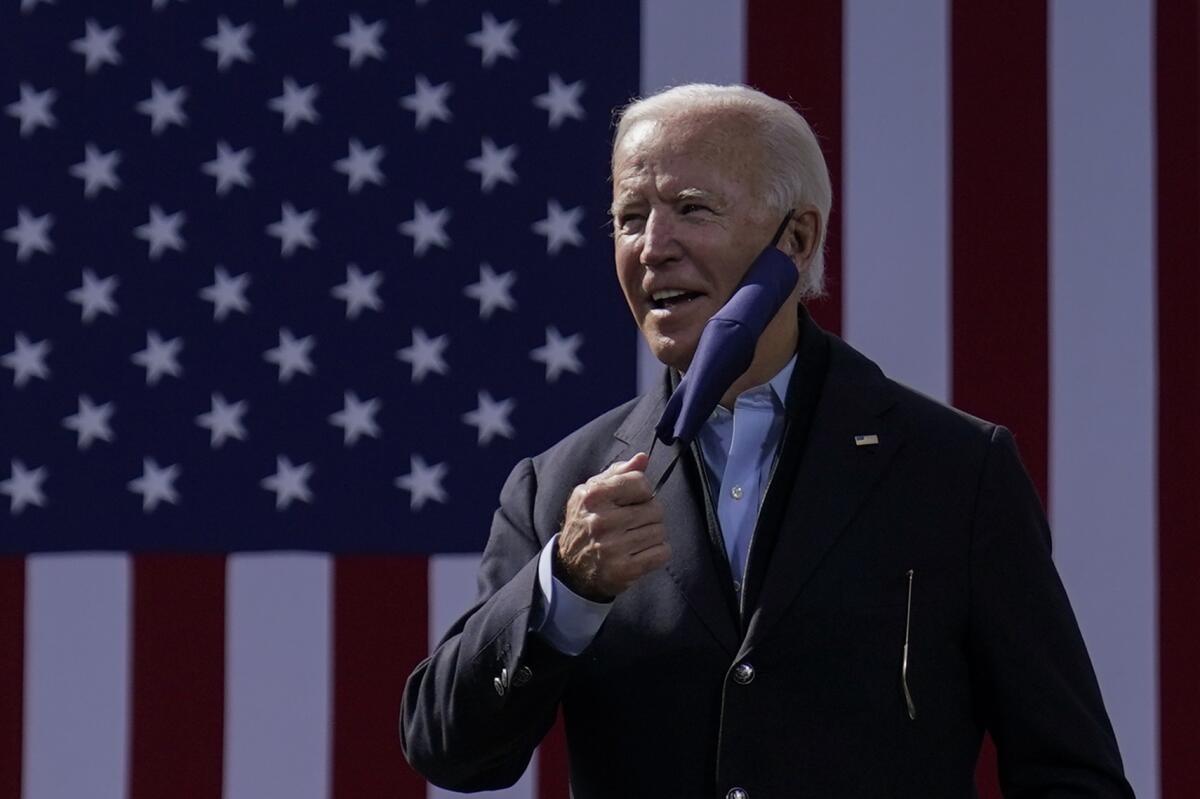
Biden, Stepien added, was “putting it all on TV,” as his campaign eschewed most door-knocking to follow public health guidelines during the pandemic, while Trump has roughly 2,000 field staffers across the country knocking on doors and making calls for his campaign.
The campaign and the Republican National Committee will offer a glimpse of their financial situation Tuesday when they file mandatory monthly campaign finance reports. Advertising spending figures, however, offer a bleak picture.
While half a dozen pro-Trump outside groups are coming to the president’s aid, Biden and his Democratic allies are on pace to dump $142 million into ads in the closing days of the campaign, outspending Republicans by more than 2 to 1, according to data from the ad tracking firm CMAG/Kantar.
A review of expenditures by Trump’s campaign, as well as the Republican National Committee, lays bare some of the profligate spending.
Since 2017, more than $39 million has been paid to firms controlled by Parscale, who was ousted as campaign manager over the summer. An additional $273.2 million was paid to American Made Media Consultants, a Delaware limited liability company, whose owners are not publicly disclosed.
Campaigns typically reveal in mandatory disclosures who their primary vendors are. But by routing money to Parscale’s firms, as well as American Made Media Consultants, Trump satisfied the basic disclosure requirements without detailing the ultimate recipients.
Other questionable expenditures by Trump and the RNC that are included in campaign finance disclosures:
— Nearly $100,000 spent on copies of Donald Trump Jr.’s book “Triggered,” which helped propel it to the top of the New York Times bestsellers list.
— Over $7.4 million spent at Trump-branded properties since 2017.
— At least $35.2 million spent on Trump merchandise.
— $38.7 million in legal and “compliance” fees. In addition to tapping the RNC and his campaign to pay legal costs during his impeachment proceedings, Trump has also relied on his political operation to cover legal costs for some aides.
The House has impeached President Trump on charges of abuse of power and obstruction of Congress.
— At least $14.1 million spent on the Republican National Convention. The event was supposed to have been held in Charlotte, N.C., but Trump relocated it to Jacksonville, Fla., after a dispute with North Carolina’s Democratic governor over coronavirus safety measures. The Florida event was ultimately canceled as well, with a mostly online convention taking its place.
— $912,000 spent on ads that ran on the personal Facebook pages of Parscale and Trump spokesperson Katrina Pierson.
— A $250,000 ad run during Game 7 of the 2019 World Series, which came after Trump was booed by spectators when he attended Game 5.
— At least $218,000 for Trump surrogates to travel aboard private jets provided by campaign donors.
— $1.6 million on TV ads in the Washington, D.C., media market, an overwhelmingly Democratic area where Trump has little chance of winning but where he is a regular TV watcher.
With a growing likelihood of Joe Biden winning, Republican candidates have begun to step away from Trump, urging voters to elect them as a check on the Democrat.
Instead of giving more to Trump, some supporters are exploring their options. Republican megadonor Sheldon Adelson and his wife, Miriam, recently donated $75 million to Preserve America, a new pro-Trump super political action committee that is not controlled by Trump world political operatives.
One of the reasons the group was founded in August is because there is deep distrust among some GOP donors that the existing pro-Trump organizations would spend the money wisely, according to a Republican strategist with direct knowledge of the matter. The strategist spoke on condition of anonymity to discuss sensitive discussions with donors.
Dan Eberhart, who has given over $190,000 to Trump’s election efforts, said many Republican donors are now focused on keeping control of the Senate in GOP hands — not Trump’s chances of winning.
“The Senate majority is the most important objective right now,” he said.
More to Read
Get the L.A. Times Politics newsletter
Deeply reported insights into legislation, politics and policy from Sacramento, Washington and beyond. In your inbox three times per week.
You may occasionally receive promotional content from the Los Angeles Times.
